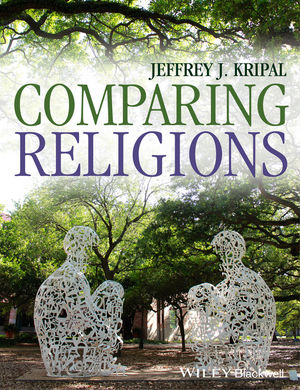-

Browse by Chapter
-

Browse by Resource
Kripal, Jain, Prophet, Anzali:
Comparing Religions

Welcome to the Student Companion Site for
Comparing Religions
Welcome to the website for Comparing Religions by Jeff Kripal with Ata Anzali, Andrea Jain and Erin Prophet. Here you will find an exciting collection of additional resources to accompany the book. These include summaries of seven religious traditions, a set of video resources in which the authors and noted scholars of religion talk about the book and their work, a list of useful websites, guidelines for comparing religions responsibly, an annotated bibliography, and many more. This website is currently being developed and new material is being added regularly.
Please use the menu bar at the top of this page to access these resources.
"This book offers the most original and provocative recasting of the comparative study of religion in decades, and it's aimed just where we need this rethinking the most: the classroom. Other textbooks tend to work with a checklist of subjects as they summon the major religions serially to the stage. Kripal starts instead with the mystery of the comparative act itself, allowing that to determine what he brings forward for our attention. So it's charisma, sex, the paranormal, and 'soul practices' more than it's Hinduism, Buddhism, Islam. Kripal recognizes the comparativist in each of us and urges us to take it seriously. The result is deep and wide, and excitingly open-minded."
John Stratton Hawley, Barnard College, Columbia University
"Armed with an extensive array of case studies and a richly diverse portfolio of illustrations, Kripal not only provides a lucid survey of the 'facts' of the world's religions, but inspires us to embrace the fundamentally transcendent nature of the religious experience in all of its manifestations, both ordinary and uncanny, and to confront the inherent challenges of studying religion in a responsibly comparative manner. Comparing Religions is a masterly example of how a book intended for the classroom can be an invigorating stimulus toward new ways of thinking about a phenomenon that pervades every aspect of our world."
Sarah Iles Johnston, Ohio State University


